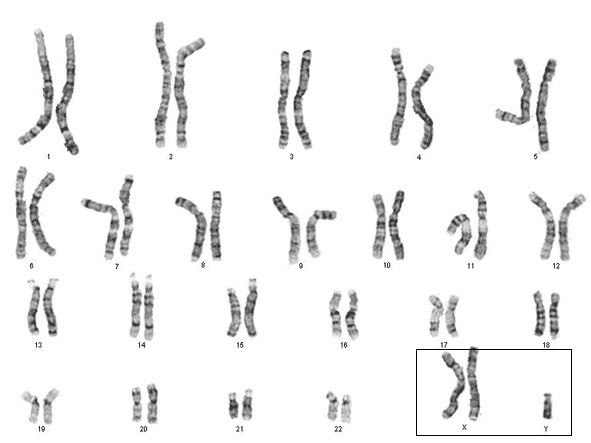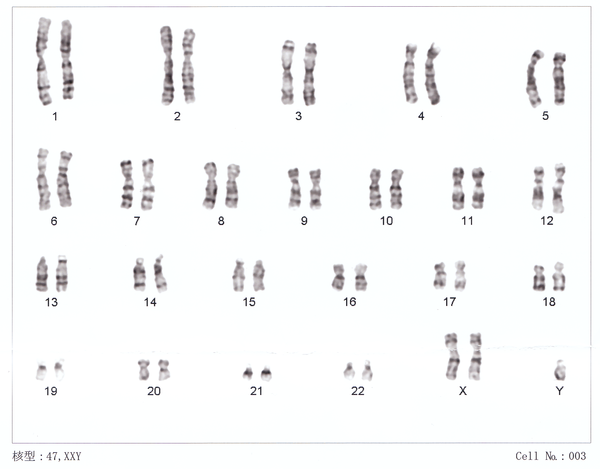Klinefelter Syndrome, also known as XXY Chromosome Disorder, is a genetic condition that affects males. It occurs when a male is born with an extra copy of the X chromosome, leading to developmental and physical differences. This article explores the details of this condition, including its causes, symptoms, diagnosis, and care options.

Understanding Klinefelter Syndrome
Klinefelter Syndrome is a chromosomal disorder that arises due to a random error during the formation of reproductive cells in one of the parents. Typically, males have one X chromosome and one Y chromosome. However, individuals with this syndrome have two X chromosomes and one Y chromosome. This additional chromosome disrupts the normal development of the body, particularly affecting testosterone production and physical characteristics.
Causes of Klinefelter Syndrome
The exact cause of Klinefelter Syndrome remains unknown, but it is believed to result from a random genetic event. During conception, the combination of chromosomes from the mother and father determines the genetic makeup of the child. In cases of Klinefelter Syndrome, an error occurs, resulting in an extra X chromosome. This error can happen during the formation of sperm or egg cells or shortly after fertilization.
- Maternal Age: Advanced maternal age may slightly increase the risk of chromosomal abnormalities, though Klinefelter Syndrome can occur in children of mothers of any age.
- Random Occurrence: The condition is not inherited and typically occurs spontaneously, meaning it is not passed down through families.
Symptoms of Klinefelter Syndrome
The symptoms of Klinefelter Syndrome vary widely among individuals and may range from mild to more pronounced. Some individuals may remain undiagnosed for years because the symptoms are subtle or attributed to other factors. Below are the common signs and symptoms associated with this condition:
Physical Characteristics
- Taller than average height with longer legs and arms
- Reduced muscle mass and strength
- Enlarged breast tissue, a condition known as gynecomastia
- Less facial and body hair compared to other males
- Small testicles and penis
- Weaker bones, increasing the risk of fractures
Hormonal and Developmental Issues
- Low levels of testosterone, which can affect sexual development and fertility
- Delayed puberty or incomplete development during adolescence
- Infertility due to reduced sperm production
Cognitive and Emotional Challenges
- Learning difficulties, particularly with reading, writing, and processing information
- Speech and language delays during early childhood
- Difficulty with social interactions and forming relationships
- Increased risk of anxiety, depression, and low self-esteem
Diagnosis of Klinefelter Syndrome
Diagnosing Klinefelter Syndrome often involves a combination of physical examinations, medical history reviews, and laboratory tests. Since the symptoms can be subtle, many individuals are diagnosed later in life, sometimes during investigations for infertility or hormonal imbalances.
Prenatal Diagnosis
In some cases, Klinefelter Syndrome can be detected before birth through prenatal testing. These tests include:
- Amniocentesis: A procedure where a small sample of amniotic fluid is taken to analyze the fetal chromosomes.
- Chorionic Villus Sampling: A test involving the removal of a small piece of placental tissue to examine the chromosomes.
Postnatal Diagnosis
If Klinefelter Syndrome is suspected after birth, healthcare providers may recommend the following diagnostic steps:
- Physical Examination: A doctor may notice physical signs such as small testicles, reduced muscle tone, or gynecomastia.
- Hormone Testing: Blood tests can measure testosterone levels and other hormones to identify imbalances.
- Karyotyping: A laboratory test that analyzes the number and structure of chromosomes in the cells. This test confirms the presence of an extra X chromosome.
Management and Care for Klinefelter Syndrome
While there is no cure for Klinefelter Syndrome, various treatments and interventions can help manage the symptoms and improve quality of life. A multidisciplinary approach involving healthcare providers, therapists, and educators is often recommended.
Hormone Replacement Therapy
One of the primary treatments for Klinefelter Syndrome is hormone replacement therapy. Testosterone therapy can help address low testosterone levels, promoting the development of secondary sexual characteristics, improving muscle mass, and enhancing overall well-being. This treatment is usually started during puberty or later in life, depending on the individual’s needs.
Fertility Treatments
Most individuals with Klinefelter Syndrome experience infertility due to reduced sperm production. However, advancements in reproductive technology have made it possible for some men with this condition to father children. Options include:
- Testicular Sperm Extraction: A surgical procedure to retrieve sperm directly from the testicles for use in assisted reproductive techniques like in vitro fertilization.
- Donor Sperm: For those unable to produce viable sperm, donor sperm can be used as an alternative.
Educational and Therapeutic Support
Children and adolescents with Klinefelter Syndrome may benefit from educational and therapeutic interventions to address learning difficulties and emotional challenges. These include:
- Speech and Language Therapy: To improve communication skills and address delays in speech development.
- Occupational Therapy: To enhance fine motor skills and coordination.
- Behavioral Therapy: To support emotional regulation and social skills.
Lifestyle Modifications
Making healthy lifestyle choices can significantly improve the quality of life for individuals with Klinefelter Syndrome. Recommendations include:
- Engaging in regular physical activity to build muscle strength and maintain a healthy weight.
- Eating a balanced diet rich in calcium and vitamin D to support bone health.
- Avoiding tobacco and excessive alcohol consumption to reduce the risk of complications.
Psychological Support
Living with Klinefelter Syndrome can be emotionally challenging, particularly when dealing with issues related to infertility, self-image, and social interactions. Counseling and support groups can provide valuable resources for individuals and their families, helping them cope with the psychological impact of the condition.
Long-Term Outlook
With appropriate care and support, individuals with Klinefelter Syndrome can lead fulfilling lives. Early diagnosis and intervention play a crucial role in managing symptoms and addressing potential complications. Regular follow-ups with healthcare providers ensure that any emerging issues are promptly addressed, allowing individuals to thrive despite the challenges posed by this condition.





